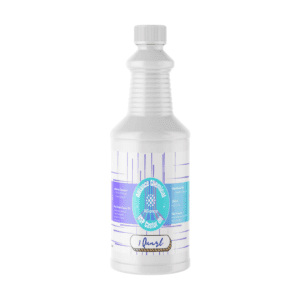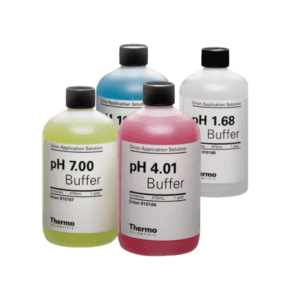Industrial Chemicals
Description
Industrial Chemicals: Key Materials for Manufacturing and Production
Industrial chemicals play an indispensable role in a vast range of industries, providing the necessary raw materials, reagents, and intermediates for the production of goods. These chemicals are used in processes like manufacturing, assembly, processing, and chemical synthesis, helping industries to scale operations, improve product quality, and meet specific regulatory standards. From adhesives and coatings to fertilizers and pharmaceuticals, industrial chemicals form the backbone of many industrial sectors.
Applications of Industrial Chemicals:
- Manufacturing and Production: Industrial chemicals are fundamental in the production of everything from plastics and chemicals to metals and textiles.
- Agriculture: Fertilizers, pesticides, and growth regulators derived from industrial chemicals are used extensively to enhance crop yield and control pests.
- Pharmaceuticals and Biotechnology: Raw chemicals, solvents, and active ingredients are used to create medicines and vaccines.
- Automotive: Industrial chemicals are involved in producing coatings, lubricants, and components that meet the needs of the automotive industry.
- Food and Beverage: Food-grade industrial chemicals help with processing, preservation, and packaging of food products.
- Environmental Protection: Industrial chemicals are crucial for waste management, water treatment, and pollution control.
Comprehensive List of Products in the Industrial Chemicals Category:
1. Acetone (C₃H₆O):
- Applications: Used as a solvent in the chemical industry, in the production of plastics, and for cleaning purposes.
- Industries: Chemical manufacturing, pharmaceuticals, coatings, automotive.
- Features: Highly volatile, effective as a degreaser and solvent.
2. Sodium Hydroxide (NaOH):
- Applications: Commonly used in soap production, paper manufacturing, and water treatment.
- Industries: Chemical manufacturing, water treatment, soap production.
- Features: Available in both liquid and solid forms, highly caustic.
3. Sulfuric Acid (H₂SO₄):
- Applications: Essential in the production of fertilizers, detergents, and chemical intermediates.
- Industries: Chemical manufacturing, fertilizers, mining, and wastewater treatment.
- Features: Available in various concentrations, strong acid.
4. Hydrochloric Acid (HCl):
- Applications: Used in metal cleaning, production of inorganic chemicals, and for pH control.
- Industries: Metal processing, chemical manufacturing, food production.
- Features: Available in various concentrations for different industrial applications.
5. Ammonium Nitrate (NH₄NO₃):
- Applications: Used as a fertilizer, in explosives, and in cold packs for medical use.
- Industries: Agriculture, explosives manufacturing, pharmaceuticals.
- Features: Available in granular and prilled forms.
6. Calcium Carbonate (CaCO₃):
- Applications: Used as a filler in plastics, paints, and as a raw material in cement production.
- Industries: Construction, plastics, paints, and coatings.
- Features: Available in powder form, commonly used as a neutralizing agent.
7. Sodium Bicarbonate (NaHCO₃):
- Applications: Used in baking, water treatment, and as a cleaning agent.
- Industries: Food production, cleaning, water treatment.
- Features: Available in both industrial and food-grade forms.
8. Ethylene Glycol (C₂H₆O₂):
- Applications: Used in antifreeze, de-icing solutions, and as a raw material for polyester fibers.
- Industries: Automotive, textiles, chemical manufacturing.
- Features: Colorless, odorless liquid with antifreeze properties
9. Xylene (C₆H₄(C₂H₅)₂)
- Applications: Used as a solvent in paints, coatings, and adhesives.
- Industries: Paints and coatings, chemicals, and adhesives.
- Features: Available in industrial-grade concentrations for a variety of applications.
10. Toluene (C₆H₅CH₃):
- Applications: Used as a solvent in the manufacture of paints, coatings, adhesives, and cleaning agents.
- Industries: Chemical manufacturing, paints and coatings, adhesives.
- Features: Highly effective solvent, available in industrial-grade and pure forms.
11. Propylene Glycol (C₃H₈O₂):
- Applications: Used as a solvent, in antifreeze, and in food products and cosmetics.
- Industries: Food production, cosmetics, pharmaceuticals.
- Features: Colorless, odorless liquid, safe for use in food and personal care.
12. Formaldehyde (CH₂O):
- Applications: Used in the production of plastics, disinfectants, and as a preservative.
- Industries: Chemical manufacturing, textiles, healthcare.
- Features: Available as a gas or in aqueous solutions, highly reactive.
13. Titanium Dioxide (TiO₂):
- Applications: Used as a pigment in paints, coatings, and plastics.
- Industries: Paints and coatings, plastics, cosmetics.
- Features: White pigment, excellent opacity and brightness.
14. Acetic Acid (CH₃COOH):
- Applications: Used in the production of vinegar, as a solvent, and in chemical synthesis.
- Industries: Food production, chemicals, plastics.
- Features: Available in glacial and diluted forms, essential for chemical manufacturing.
15. Polyethylene (C₂H₄)n:
- Applications: Used in the manufacture of plastics, films, and containers.
- Industries: Packaging, automotive, construction.
- Features: Available in high-density (HDPE) and low-density (LDPE) forms for various applications.
16. Magnesium Sulfate (MgSO₄):
- Applications: Used as a drying agent, in fertilizers, and as a laxative.
- Industries: Agriculture, pharmaceuticals, chemical manufacturing.
- Features: Available in heptahydrate or anhydrous forms.
17. Sodium Chloride (NaCl):
- Applications: Used as table salt, in water treatment, and in industrial processes.
- Industries: Food production, water treatment, chemical manufacturing.
- Features: Available in different forms, including rock salt, solar salt, and industrial salt.
18. Chlorine (Cl₂):
- Applications: Used in water treatment, production of disinfectants, and in chemical synthesis.
- Industries: Water treatment, chemical manufacturing, agriculture.
- Features: Available in gas form, liquid chlorine, and various chlorine-based compounds.
19. Zinc Oxide (ZnO):
- Applications: Used in rubber production, cosmetics, and as a catalyst in chemical processes.
- Industries: Pharmaceuticals, rubber, chemical manufacturing.
- Features: Available in powdered form, commonly used in sunscreen and cosmetics.
20. Benzene (C₆H₆):
- Applications: Used in the production of plastics, resins, and synthetic fibers.
- Industries: Chemical manufacturing, plastics, automotive.
- Features: Available as a colorless liquid with a sweet odor, highly volatile.
Conclusion:
Industrial chemicals are essential for the operation and success of various manufacturing, production, and processing industries. These chemicals are used as raw materials, intermediates, catalysts, and solvents, facilitating a wide range of applications in fields like agriculture, automotive, pharmaceuticals, and environmental protection. With an extensive range of products, from acids and solvents to polymers and metals, the industrial chemical sector enables businesses to create products at scale, improve efficiency, and comply with industry standards.





